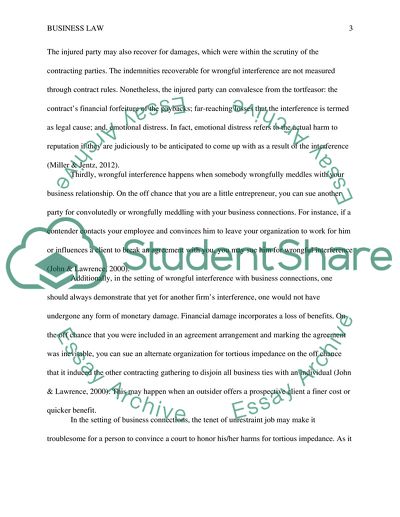Cite this document
(“What are the differences between Wrongful Interference with a Essay”, n.d.)
Retrieved from https://studentshare.org/law/1663755-what-are-the-differences-between-wrongful-interference-with-a-contractual-relationship-and-wrongful-interference-with-a-business-relationship
Retrieved from https://studentshare.org/law/1663755-what-are-the-differences-between-wrongful-interference-with-a-contractual-relationship-and-wrongful-interference-with-a-business-relationship
(What Are the Differences Between Wrongful Interference With a Essay)
https://studentshare.org/law/1663755-what-are-the-differences-between-wrongful-interference-with-a-contractual-relationship-and-wrongful-interference-with-a-business-relationship.
https://studentshare.org/law/1663755-what-are-the-differences-between-wrongful-interference-with-a-contractual-relationship-and-wrongful-interference-with-a-business-relationship.
“What Are the Differences Between Wrongful Interference With a Essay”, n.d. https://studentshare.org/law/1663755-what-are-the-differences-between-wrongful-interference-with-a-contractual-relationship-and-wrongful-interference-with-a-business-relationship.


